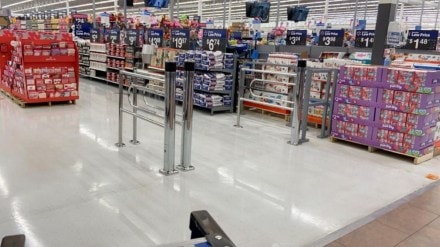As Americans gear up for Black Friday, recent data from a Deloitte survey has revealed a notable shift in holiday spending behaviour for 2025. American consumers are expected to spend 4% less during the Black Friday to Cyber Monday period in 2025 compared to last year.
For the first time since 2021, consumers are pulling back on holiday spending. The reason? Financial concerns. This shift is attributed primarily to the rising cost of living and reflects a widespread sense of economic caution amid persistent inflation and fears of a recession, NBC News reported.
Black Friday shopping: Spending cuts across income levels
The planned reduction in spending spans income groups, with households earning less than $50,000 annually expected to spend 12% less, and those earning over $200,000 predicted to cut back by 18%.
“While we expect shoppers to plan to pull back on spending, we also anticipate strong participation throughout the holiday week,” Natalie Martini, Deloitte’s vice chair and US retail and consumer products leader, said in a press release.
Economic anxiety drives spending behaviour
Consumer confidence is near decade lows, influenced by fears of rising unemployment, 69% expect job losses over the coming year, and ongoing inflation, which is anticipated to reach 4.5% in 2026.
This anxiety is shaping more cautious holiday budgets and a shift in shopping priorities toward necessities rather than discretionary spending.
Value and financing options influence purchases
With stretched budgets, shoppers are increasingly hunting for deals and making use of financing options. About 64% plan to use credit cards or buy now, pay later (BNPL) services such as Klarna, Afterpay, or Affirm to manage holiday expenses.
Younger consumers, especially Millennials and Gen Z, are the most active users of BNPL, with 39% indicating plans to leverage these services during Black Friday sales, the survey found.
Retailers see mixed trends across segments
Discount retailers like Walmart and TJX Cos. have reported strong sales, driven by shoppers trading down to value-oriented options. Conversely, retailers reliant on discretionary spending like Target and Bath & Body Works have faced challenges, Yahoo! Finance reported.
Consumers are prioritising essentials over luxury or non-essential products, Walmart’s CFO John David Rainey had told Bloomberg earlier this year.
